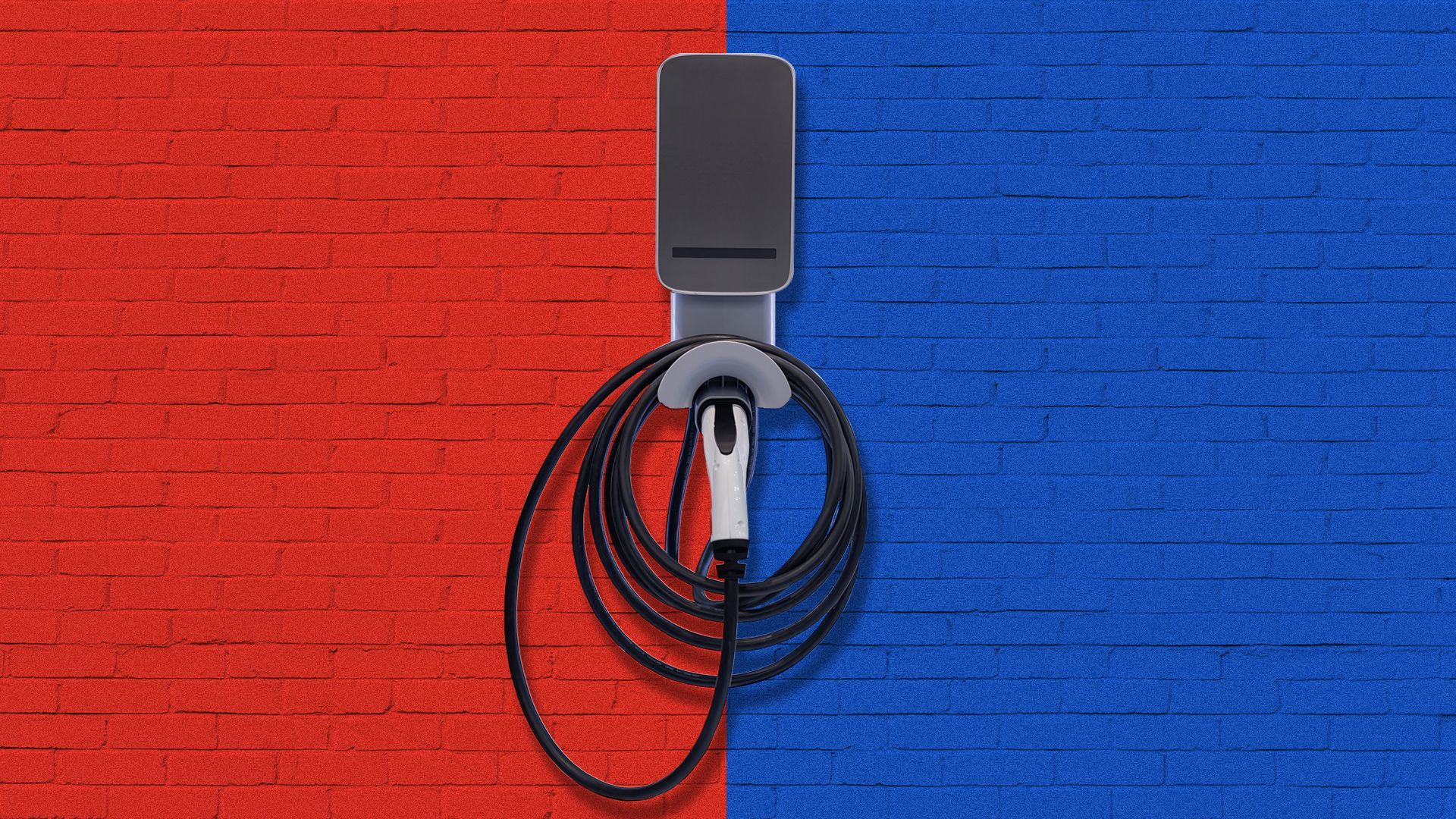EVs, like everything else, are political

- Ben Geman, author ofAxios Generate

Illustration: Aïda Amer/Axios
A new analysis finds a "strong and enduring correlation" between political ideology and U.S. electric vehicle adoption.
Driving the news: The working paper, from UC Berkeley's Energy Institute at Haas, explores county-level new car registrations from 2012-2022 and compares them to voting records in presidential races.
- "During our time period about half of all EVs went to the 10% most Democratic counties, and about one-third went to the top 5%," the study found.
- "There is relatively little evidence that this correlation has decreased over time, and even some specifications that point to increasing correlation."
Why it matters: If EV uptake remains a big thing only in very blue places, it may be "harder than previously believed" to reach high market penetration, they write.
The big picture: EVs are a pillar of White House climate efforts.
- A draft EPA rule effectively aims to have EVs claim two-thirds of light-duty sales by 2032, up from around 8% now.
- Purchase subsidies for the vehicles are a key part of the 2022 climate law.
The intrigue: The authors tested other explanations for the seeming political divide.
- The most Democrat-heavy counties are ripe for EVs — they tend to be very dense, high-income, and have higher gasoline taxes.
- But the political correlation remains "strong and statistically significant even after controlling for these other factors."
Our thought bubble: EVs could become even more intertwined with political views.
- Donald Trump and other GOP candidates are bashing President Biden's policies, arguing they'll boost reliance on Chinese tech and materials and defy consumer preferences.
- Or it could potentially get less political. Consider that EV and battery manufacturing is taking off in red states, stitching the tech into the fabric of those economies.
Flashback: The paper follows a BloombergNEF analysis with similar results.
- Looking at the 2020 election, it found a clear relationship between state vote shares for Biden and EV adoption as of late 2022.
- But many forces are at play, like state incentives and climate policies, and whether states allow EV sales to bypass traditional dealers, it found.
What they're saying: Bill Ford, executive chairman of the auto giant, is dismayed EVs have become "heavily politicized."
"Some of the red states say this is just like the vaccine, and it's being shoved down our throat by the government, and we don't want it," he told the New York Times.
The bottom line: Green cars might not escape the red-blue divide.